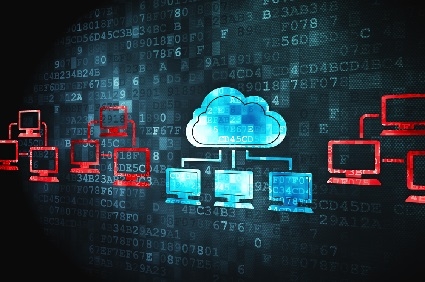As government organizations look to improve their processes, virtualization has become an optimal answer. Virtualization efforts can be easily integrated with cloud and data center operations, making it a true force to be reckoned with. Let's take a look at the benefits of government virtualization:
Better information sharing
Traditionally, government organizations have operated as separate, unique entities, but this could create conflicts in knowledge across agencies and affect emergency responsiveness. Even internally, employees might have trouble finding the information they need if the documents aren't organized and maintained. Virtualization takes care of all of these problems by providing a single platform for data access.

For example, the department of housing and urban development's inspector general has data from hundreds of sources, and the office required a unified view of internal and external points, making virtualization a perfect solution, according to GCN. Using this system will allow agencies to deliver timely and comprehensive data as well as use insight to prevent issues.
Improved security
Decision-makers often have concerns that digital platforms will not provide the protection their data requires, but this is far from the truth. By virtualizing data, organizations not only have redundancy set in place to refer to historical documents, but also can create authentication protocols to access this information. Data Center Knowledge contributor Bill Kleyman noted that virtualization not only improves data center efficiency by consolidating resources, it also allows greater control over the data that is being delivered.
"[U]sing virtualization technologies to deliver power cloud solutions (in a smart and efficient manner) can help keep you compliant, scalable and most importantly, secure," Kleyman wrote.
Many vendors are also now providing government with solutions tailored to the public sector to ensure that they are able to process data according to their unique operations. Any changes that need to be made across applications and solutions can also be easily made through virtualization, ensuring that threats are mitigated early and improving the organization's security footprint.
Significant cost savings
The reduced costs involved with virtualization and the cloud are often touted, but how much are organizations actually saving? According to Microsoft, the federal government was expected to realize $23.6 billion in cost savings by this year just from utilizing virtualization solutions. Government agencies are doing this by better utilizing their available hardware resources.
"Virtualization means creating virtual versions of computing resources – whether it's a server, a desktop, an application, a network, or an operating system," Microsoft stated. "Virtualization enables government IT leaders to squeeze more computing power out of their existing IT assets, pay for those resources more efficiently, and gain more control over how those resources are allocated across their agencies."
Virtualization is a major benefit to organizations, and government can reap similar advantages in their operations. Its ability to work with the cloud and data center solutions can be critical aspects for adopters. With virtualized environment, government agencies stand to save money, boost knowledge and improve security, making this technology a significant asset.